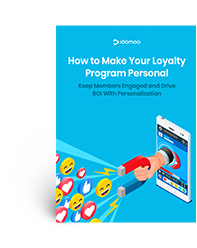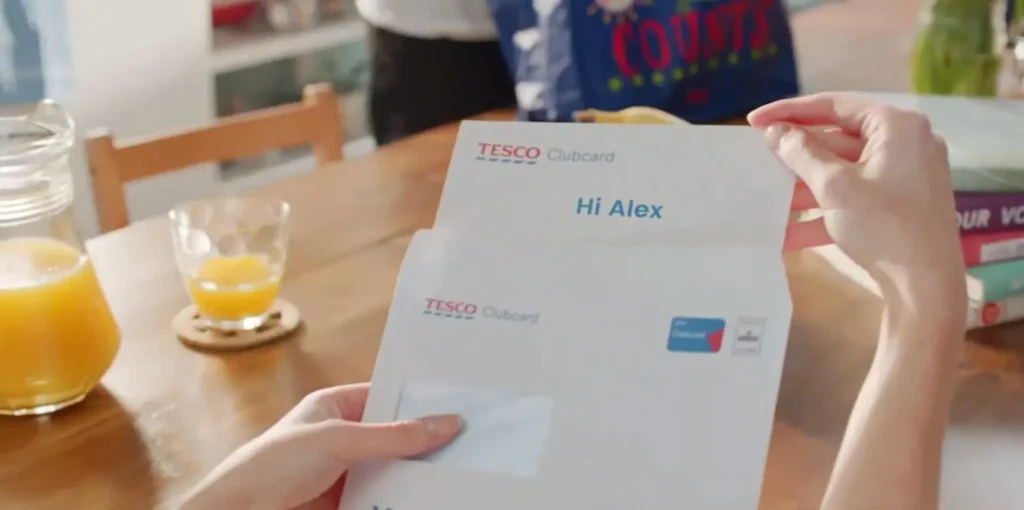When something is broken in your business, it can be difficult to come together as a team and identify the root of the problem. In the case of customer churn, however, there’s a strong consensus among industry experts who say that your broader customer experience strategy has a profound impact on your retention rate.
According to Gartner, CX drives over 66% of customer loyalty, more than price and product combined. That includes everything from onboarding to customer service. It’s whatever makes your experience unique from your competitors. And as you’ll read below, reducing customer churn requires a customer-centric approach, enriched through personalization and a strong CX.
While churn is often overlooked, secretly undercutting your bottom line, if you’re here, you know it’s a problem. We’ll dig into causes and solutions below, leave you with a few next steps for churn prevention and, even better, build a roadmap to strengthen customer loyalty for the long term.
How Can You Reduce Churn?
So that’s the question — what does it really take to reduce customer churn? Let’s hear from some other pros in this space:
- “Great customer success is perhaps the single greatest defense you have against high churn.” — Retently
- “We are living and working in the era of the customer, and customers are demanding exceptional customer service and experiences. When they don’t receive it, they flock to competitors…” — NG Data
- “Customer loyalty can be increased by performing value enhancement activities that leave a customer feeling like they can use the product better and are more confident in their purchase decision.” — Gartner
Let’s look at some of those phrases again: customer success, era of the customer, exceptional customer service, value enhancement. If you want to keep your customers, you have to focus on them.
It’s no longer just about offering a great product — it’s about the entire journey your customers experience, from the moment they discover your brand to long after their purchase. Customers who don’t feel valued will quickly move on to a competitor offering a better experience. The objective, then, is to establish and maintain a strong connection throughout their lifecycle.
This can mean different things depending on your industry and customer base, but here are some steps to follow to boost customer retention.
First, Find Out Why Customers Churn
Why are your customers leaving?
To help reduce customer churn, a business needs to first look inward at its customer care — a common point of friction — and recognize where it’s falling short. More often than not, weaknesses present themselves in the form of impersonal messaging and poor customer service processes.
As a side note, we’ve written before about why we need to take customer service as seriously as advertising. So much effort (and budget) is invested into customer acquisition when your existing customer relationships support your bottom line.
Beyond customer service, customers might also leave because they don’t feel they’re getting value from your offering (are you communicating the value of your product or service?) or because of a poor customer onboarding experience. Ultimately, there are dozens of possible reasons.
To see where the problems are in your business, take a look at the data. Things to gather include:
- NPS scores
- CSAT (customer satisfaction score)
- Retention rate
- Number of support tickets over a period of time
- Customer feedback
- Social media sentiment
As you’ll notice, you need to look at qualitative as well as quantitative data for any comprehensive churn analysis. It’s helpful to zero in on customer care inquiries that went unresolved or customer survey write-in responses to understand customer needss and concerns.
Maybe the most important metric listed above is customer retention rate, or the percentage of customers who stick around during a specific time. We have a handy guide on how to calculate retention rate if you don’t have this number.
Your retention rate is essentially the inverse of your churn rate. Churn rate measures the percentage of customers who leave or stop doing business with you over a particular time period. Your monthly churn, for example, shows how many customers are leaving month to month, with a high churn rate meaning you’re losing a significant number of customers in that time frame.
Understanding your customer churn rate is key because it lets you benchmark where you are now so you can see if new retention strategies have the desired effect.
As you collect and organize data, you’ll also be able to see overarching trends and understand how a subpar customer experience has led to churn. Higher support calls within a given period can indicate a problem. You can sometimes even identify behaviors that signal a customer segment is at risk of churning, allowing you to be proactive and reach out early.
Bottom line, once you identify the most common reasons for customer churn — and there is likely more than one — you can start to address them.
Focus on Loyalty
Post on
The Harvard Business Review found that companies identified as “loyalty leaders,” consistently at the top of their industry in terms of customer satisfaction, grew revenues 2.5x faster than their peers. By making the most of customer lifetime value, they increased their ROI from current customers, leading to stronger growth.
After all, the opposite of churn isn’t really retention — it’s customer loyalty. It’s not just keeping that customer for the next year but having them become a brand ambassador, an advocate for your company who recommends you to their friends and colleagues. That’s the kind of customer you want. So how do you get there?
Focus on retention strategies that prioritize loyalty. Taking a tip from loyalty programs is a good place to start, even if your industry doesn’t use these kinds of programs. Think about how they work. A loyalty program welcomes you with fanfare, offering plenty of incentives for you to stick around. It gives you exclusive offers or access to new products, it makes sure you’re always in the loop and you get perks just by continuing to be a customer.
But loyalty doesn’t always have to look like a traditional program. You don’t need a punch card or a clever newsletter to make your customers feel valued. Find ways to celebrate them, especially to celebrate their journey as your customer. These gestures of appreciation create a sense of belonging and show your customers they’re valued. Here’s a good example from Delta.
Part of what makes this video so great is that it’s not just something to make the customer smile — although it easily does that — it also reminds the customer why they love flying with Delta. By incorporating unique customer data points, it highlights memorable moments from the past year and encourages them to look ahead to another with Delta.
Even better, when you keep in touch with your most loyal customers, they’re primed for cross-selling and upselling opportunities (as long as it’s relevant).
Speaking of relevance, it’s time to talk about personalization.
Use Personalization To Cut Churn
Gartner recently shared their 5 strategies to prevent churn. What ranks at the top of the list? You guessed it — personalization.
Here’s what they say:
“Create a culture of personalization. Customers appreciate when companies go the extra mile to understand their needs and personalize their experiences. Segment customers according to their needs and preferences, and then provide personalized after-sale services, including customer support, tailored product recommendations and timely follow-ups.”
Of course, true personalization is 1:1. It’s not sending the same message to a group of people. It’s specific to that individual.
Imagine you’re financing a new car. The car you bought, the payment schedule you signed up for and other details of your agreement are unique to you. Here’s an example of a message you might receive from a brand that’s been personalized to you.
You probably saw that the customer’s name was in the video, too. That’s another powerful opportunity for personalization. Just greeting someone by their name lets them know that the message was made just for them.
Another interesting point — the video above is a personalized welcome video. It’s a key moment in the onboarding process. And Gartner listed customer onboarding as their second strategy to avoid churn:
“Onboarding is pivotal in reducing customer attrition, as it sets the tone for a new customer’s overall experience with your business. Ensure your customers have a smooth transition from their trial period through onboarding, with no bumps along the way.”
Personalization shouldn’t just happen during onboarding, though. It has to be consistent. Ask yourself what steps you’re taking to ensure that every engagement with every customer is directly relevant to their experience with your brand. At a time when personalized content is expected at touchpoints throughout the customer journey, it’s important to deliver relevancy — because if you don’t, another brand will.
Now, achieving personalization at scale would be a massive challenge if done manually. To create thousands or even millions of what we call Next Gen Videos — videos that go beyond traditional boundaries by being personalized, interactive and dynamic — you need a powerful platform that can handle that level of customization without sacrificing quality.
And if you want to cut time and costs, you can also bring AI into the mix. With retrieval-augmented generation, AI can be trained on your brand’s content to generate accurate, ready-to-use videos from a simple prompt. Our Next Generation Video Platform does it all, bringing together data, automation and, if you want, AI to deliver next-level CX through video.
Personalizing the Customer Experience
When company leaders and even marketers think about personalization, they can worry. Is it complicated? Is it expensive? Truth is, you’ve been using personalization in your marketing strategy for years. Adding a recipient’s first name to a message has been a core tenet of email marketing since the 2000s. It’s one way to stand out in a crowded inbox (over 300 billion emails are sent daily).
The same principle holds true for other media besides text. Personalization is effective in images, GIFs and video as well. And personalization doesn’t have to be siloed within email marketing.
Let’s go back to customer service. A big part of good customer service comes down to preempting questions and being at the ready with solutions when someone comes to you. Adding a human touch, such as greeting your customer by name, can go a long way to soothing ruffled feathers.
For example, let’s say a mortgage company anticipates its customers will feel some uncertainty about payments as their forbearance comes to an end. A Personalized Video could be created to explain next steps for each customer based on their unique situation, addressing their concerns before they even call in.
If you watch the Next Gen Video above, you’ll see that it’s interactive. You can navigate through it to get the answers you need faster by clicking within the video itself. Interactivity is great way to customize the user experience because the viewer controls the narrative. It’s a win-win for churn reduction, as it increases customer engagement and satisfaction at the same time.
Proactively creating tutorials like these doesn’t just benefit your customers. It also relieves your customer success team from answering minor inquiries that can easily be handled through self-service options. This frees reps up to focus on more complex customer concerns where their expertise is especially needed.
Think of how much time can be saved when your team isn’t tied up answering the same questions over and over, but instead has the bandwidth to offer deeper support. At the same time, your customers will appreciate having access to convenient resources that solve their issues fast.
At the end of the day, quicker solutions alongside more meaningful interactions lead to stronger relationships that drive long-term loyalty. If you’re looking for more reasons why your customer service strategy isn’t working, we’ve got 5 you should check.
Customer Retention for the Long Term
Ready to optimize your customer retention strategy? We’re here to help. You can check out our 4 customer retention facts we’ll bet your boss wants you to know. You can also browse through customer loyalty videos for inspiration from what savvy brands are doing to engage and retain people throughout the customer lifecycle.
When you’re ready to personalize your customer experience with video, we’d love to show you behind the scenes of how it all works. Sign up for a free demo.







